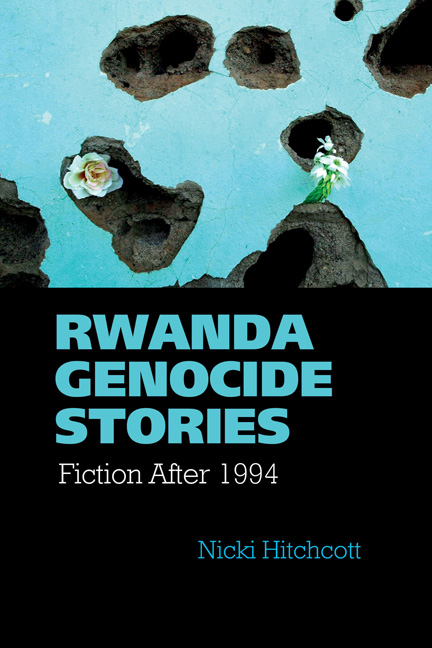1 - Rwandan Fiction
Summary
When Rwandan woman author Scholastique Mukasonga was awarded the Prix Renaudot in November 2012, the French media focused on ‘la surprise générale’ [the widespread surprise] that ‘une quasi–inconnue’ [a virtual unknown] should be awarded such a prestigious French literary prize, particularly as her novel, Notre–Dame du Nil [Our Lady of the Nile] had not originally appeared on the final shortlist (Clermont, 2012). While this event undoubtedly says more about the politics of literary consecration in France than it does about fiction from Rwanda, the fact remains that Rwandan literature is not well known either outside or inside the country, a situation that a group of Rwandan academics describes as catastrophic and unjustified (Nkejabahizi et al., 7). In a more recently published article, one of these academics, Jean–Chrysostome Nkejabahizi, draws attention to the lack of attention paid to literature in contemporary Rwanda (2012). Based in the Department of Modern Languages at the National University of Rwanda (NUR) in Butare, Nkejabahizi explains that, until very recently, there was no published anthology of Rwandan literature and no literary journal based in the country (61). Indeed, Nkejabahizi's research identifies only thirteen academic articles and not a single book–length study of Rwandan literature published after 1994. The reasons for this are discussed only briefly in what is a very short article with a long and useful bibliography. However, Nkejabahizi does identify the almost complete absence of a publishing infrastructure in Rwanda, the lack of literary events and conferences, and the loss of a number of important Rwandan literary critics as a consequence of the genocide. Of those Rwandans working on literature at NUR before 1994, Nkejabahizi cites only Rwandan exile Josias Semujanga, now a professor at the University of Montreal, as an academic who continues to write about Rwandan literature.
In an attempt to counter what he acknowledges as his own pessimism about the status of literature in his country, Nkejabahizi has co–edited the first ever Anthologie de la littérature rwandaise moderne [Anthology of Modern Rwandan Literature] published by NUR's own press in 2009. Produced with financial support from UNESCO so that it could be used as a textbook in Rwandan schools, the anthology presents extracts from eleven novels and eight short stories by Rwandan authors as well as from a selection of testimonies, poems and plays.
- Type
- Chapter
- Information
- Rwanda Genocide StoriesFiction After 1994, pp. 29 - 54Publisher: Liverpool University PressPrint publication year: 2015

